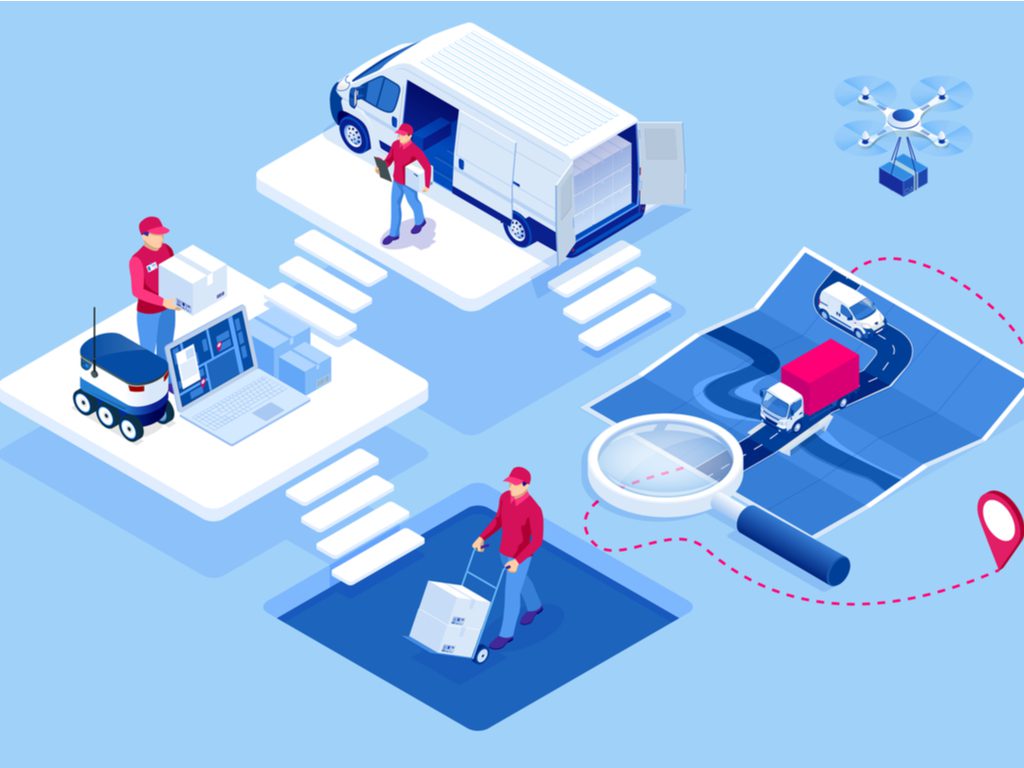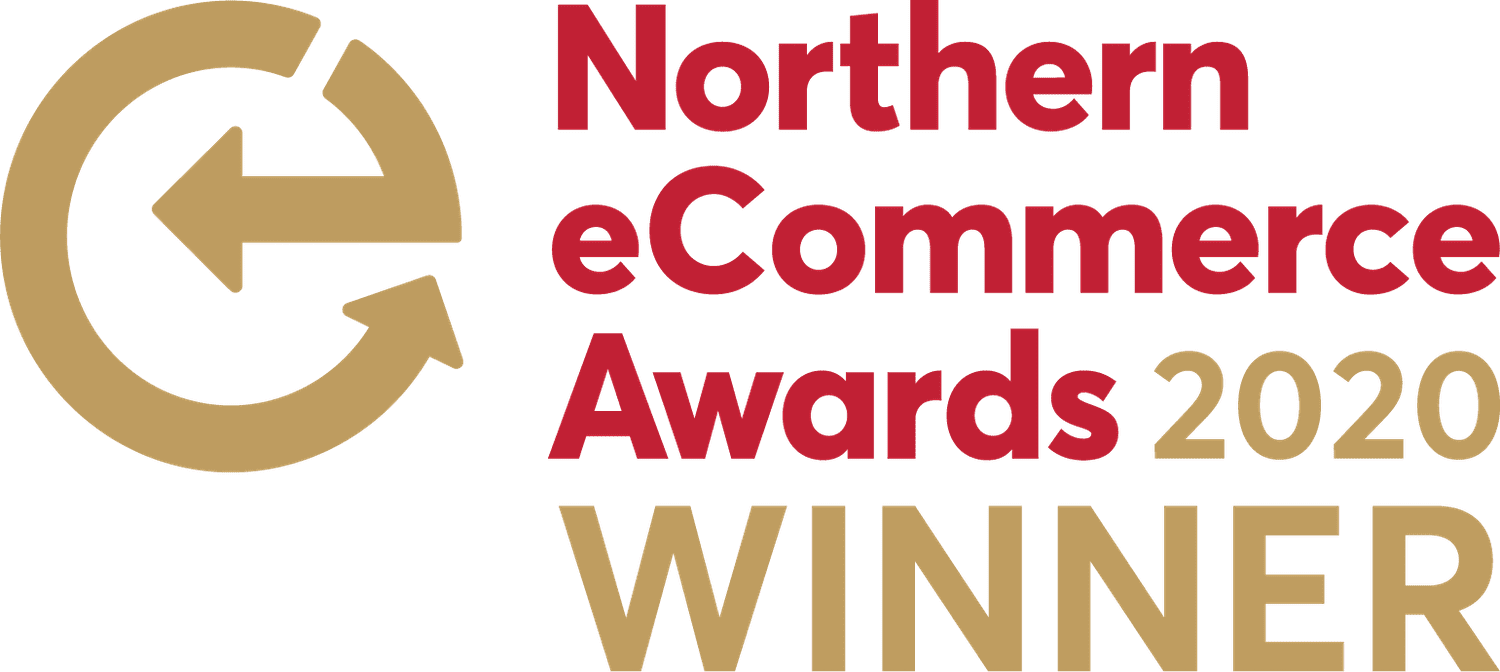Are you hoping to make 2022 the year that you take your eCommerce business to the next level? Then keep reading and 3PL will tell you the seven strategies you can use to supercharge the growth of your eCommerce business this year.
1 – Undertake a persona exercise
Who do you sell to? How old are they? Where do they live? What are their goals and ambitions?
If you really want to scale your eCommerce business, it’s absolutely essential that you nail down your target audience.
For that reason, you should undertake what’s known as a ‘persona exercise’.
This involves creating a series of personas who represent your audience and customers.
To create these personas you’ll want to look at both quantitative and qualitative information. For example, check the demographics section of your Google Analytics account. This’ll tell you the breakdown of your website visitors by age and gender.
This provides you with an excellent initial insight into your audience.
But, if you can, you should take things further.
Consider sending an email to previous customers asking them to take a survey. Ask your social media followers questions. Ask for key information when completing transactions with customers.
Whatever you do, try to glean useful information from your audience.
Once you’ve done that, you’ll be able to analyse your data and identify common trends e.g. the majority of your customers fall within a certain age range, more customers are one gender than the other etc.
Use these common trends to create your target personas.
You can then use these personas every time you’re creating a new marketing campaign, or developing a new product.
You’ll be surprised at how much more effective your efforts are once you’ve truly nailed down who your target customers are…
2 – Optimise your website
Is your website working as hard as it could be?
After all, you don’t want to spend time and money driving people to your website, only for them to find it difficult to use and leave without purchasing anything.
It can pay to invest in user experience (also known as ‘UX’). But, don’t just take our word for it.
According to a study by Forrester Research, implementing UX-friendly design on an eCommerce website can lift sales by up to 400%.
Yes, you read that correctly, 400%!!!
UX is an in-depth discipline, and it’s certainly worth speaking to a specialist agency or professional if you really want to invest in it, but for starters, here are a few basic ways you can improve the UX on your website:
- Use white space to highlight critical parts of your site (e.g. product images). The use of padding and margins can increase user attention by as much as 20%.
- Improve your page speed. The quicker your site loads, the less likely visitors are to exit your site.
- Use appealing calls to action. Highlight the benefits of your products and how they will make the reader’s life better!
- Use original images. According to a study by MGA Advertising, 67% of consumers consider high-quality images to be an important factor in their decision to purchase.
- Segment important information using bullet points. Consumers want to be able to find and read information about a product quickly. Bullet points help them to do that!
3 – Create social media campaigns
More and more people live on social media.
From your persona exercise you should have a good idea as to where your target customers hang out online.
With that information, you should create carefully targeted and curated social media campaigns.
Indeed, social media campaigns are no longer simply about developing brand awareness. Platforms such as Instagram can now be used to proactively generate sales, with ever-more eCommerce features being added.
It’s also important not to neglect an older form of digital marketing – email campaigns.
Whilst social media campaigns are incredibly effective, you should never forget that you’re using someone else’s platform. You are subject to their ever changing terms and conditions.
With an email database on the other hand, you have ownership over the data and the way it is used.
So, be sure to include a pop-up on your website encouraging people to sign up to your email newsletter. The best way to encourage sign ups is to offer a discount code on a customer’s next purchase.
4 – Work with influencers
Depending on your brand and the products that you sell, you may want to consider working with influencers.
Influencers provide you with an opportunity to tap into a ready made (usually large) audience of people who will be receptive to your brand. Plus, being associated with the right influencer can confer increased legitimacy on your brand.
An influencer’s ‘seal of approval’ can mean millions of pounds in revenue for some brands.
Of course, for an influencer campaign to work, you need to work with the right type of influencers.
Based on your persona exercise, you should have a clear idea as to what type of influencers will resonate most strongly with your audience.
In terms of actually setting up an influencer campaign, there are dedicated agencies that can do this for you.
However, it is possible to run an influencer campaign yourself. Many influencers will be able to provide you with a rate card, which sets out how much they charge per post etc.
Some influencers will work on a gifting basis e.g. they will promote your brand in exchange for some of your products. Other influencers will expect a fee in addition to some of your products. Still others will expect a fee, some of your products and a commission for every sale made via their posts.
5 – Boost your customer service
It’s an old adage but customer service really can make or break a brand.
And, it’s an adage which is more relevant than ever. The internet makes it incredibly easy for consumers to switch to an alternative brand – so, you really need to make every effort you can to provide outstanding customer service.
You’re undoubtedly already providing customer service, even if it’s just via an email or telephone helpline.
But, have you considered how you could make your customer service even better?
Consider asking customers for their feedback. You can include a survey in your order confirmation emails. Add a feedback box on your website. Send follow up emails post-purchase.
From there you’ll be able to glean some (hopefully) useful insights that will help you improve your customer service.
6 – Offer international shipping
If you want to boost your eCommerce website’s revenue in 2022, there’s one particular thing that really can supercharge your growth – international shipping.
Think of it this way; if you’re only offering domestic shipping, then you’ll be limiting yourself to a single market.
By offering international shipping you’ll literally be opening up your business to millions more potential customers.
Whilst international shipping may seem daunting -you’ll often have to navigate all sorts of duties, taxes, and shipping requirements – it needn’t be.
To make international shipping headache free, we’d recommend outsourcing your shipping to a third-party logistics provider, such as ourselves here at 3PL.
An outsourced fulfilment and shipping provider will be able to take care of all of the intricacies and details of international shipping, leaving you free to concentrate on your core business.
What’s more, third-party logistics providers often operate at scale on behalf of multiple companies, meaning they are able to negotiate the kinds of shipping rates you can only dream of!
7 – Outsource your omnichannel eCommerce order fulfilment
The single most effective way of turbocharging your revenue growth is to outsource your omnichannel eCommerce order fulfilment.
If you’re selling your products through multiple different sales channels (and who isn’t these days!?), then you’ll know that keeping an eye on your orders and fulfilment via all of these different channels can be pretty time consuming and complicated.
Outsourcing your omnichannel fulfilment to a third-party provider eliminates all of these complications and headaches.
How? Below are just some of the benefits of outsourcing your omnichannel eCommerce fulfilment:
- A third-party logistics provider such as 3PL can handle your complete end-to-end fulfilment process. This creates a seamless fulfilment process, keeping you and your customers happy.
- You gain visibility in a single place of your entire order and fulfilment process. As we mentioned earlier, managing your orders and fulfilment across multiple different channels can be time consuming and confusing. Thanks to technologies such as 3PL’s Fusion platform, you can gain complete visibility of your orders across every channel.
- You’ll benefit from economies of scale. Because third-party logistics providers such as 3PL provide fulfilment for multiple businesses, they are able to create economies of scale, from warehousing to shipping. This makes the fulfilment process cheaper, saving both you and your customers’ money.
- You’ll be able to focus on what you do best. Fulfilment and logistics can be complex and challenging things to get right. As you’ll probably be aware, the learning curve can be steep, especially as your eCommerce business gets bigger and bigger. By outsourcing your fulfilment to experts like 3PL, you’ll be able to focus on your core business activities such as marketing and sales.
- You can access new markets. As we mentioned earlier, if you really want to grow your eCommerce business, then you want to be offering international shipping. Outsourcing your fulfilment to a company like 3PL allows you to do this, but with none of the headaches!
Those are just a few of the reasons why you should be outsourcing your fulfilment in 2022.
Supercharge your growth with 3PL
Use the strategies above and you can make 2022 the best year yet for your eCommerce website.
These seven things can all make a contribution to the performance of your business, but if you’re not too sure where to start, begin by having a chat with the team here at 3PL.
Find out more about 3PL’s eCommerce order fulfilment services now
For more eCommerce fulfilment, shipping and marketing advice, read the 3PL blog…
Learn How Switching to a 3PL Can Save Your Business Money | How to Improve Your Customers’ Fulfilment Experience (And Build Loyalty) | A Guide to Omnichannel Fulfilment







